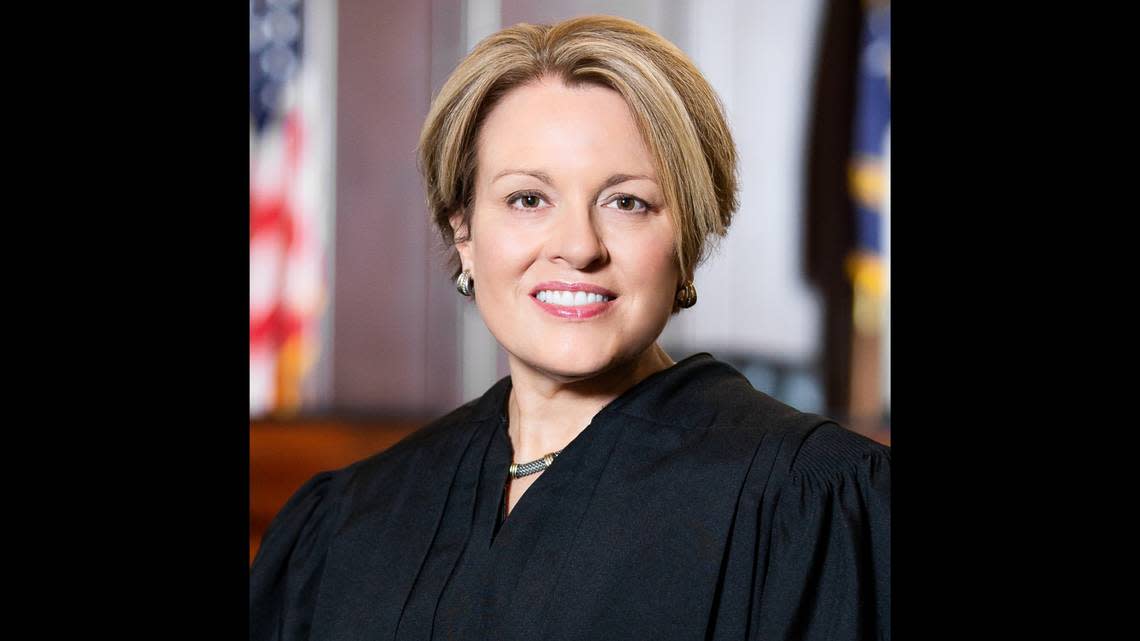Donna Stroud, candidate for NC Court of Appeals seat 9

Name: Donna Stroud
Political party: Republican
Age as of Nov. 8, 2022: 58
Campaign website: www.judgestroud.com
Occupation: Chief judge, NC Court of Appeals
Education: Campbell University, BA in government, with highest honors, 1985. Campbell University School of Law, JD, ranked first in class, 1988. Duke University School of Law, LLM in Judicial Studies, 2014.
Have you run for elected office before? Elected to District Court, 10th Judicial District (Wake County) in 2004. Elected to the Court of Appeals in 2006; reelected without opposition in 2014.
Please list highlights of your civic involvement: Chair of the Chief Justice’s Rules Advisory Commission; Courts Commission, Family Court Advisory Commission; chief justice’s Commission on Professionalism; North Carolina Bar Association — former vice president, Appellate Rules committee, and Women in the Profession committee. Vice-president of the Craven-Everett Inn of Court.
What reforms, if any, do you think could make the criminal justice system more fair?
The Court of Appeals can address only the cases filed and the issues presented in each case; our court has no authority to propose reforms. The General Assembly can investigate how our criminal justice system operates and pass laws and provide funding to address problems. As a judge, my role is to apply the law fairly and impartially in the cases. I’ve served on the court for nearly 16 years and have written about 1,300 opinions. I consider each case fully, fairly and impartially.
Are the state’s courts accessible enough to average North Carolinians? If not, what are some improvements you will advocate for, if elected?
My role in “advocating” is limited; advocacy is a legislative function. At the court, I’ve worked to improve accessibility. The Court of Appeals held sessions by video conference and issued opinions without delay during the pandemic, and all court sessions are available on YouTube. I serve on groups working on accessibility; the Chief Justice’s Rules Advisory Commission is working on recommendations for changes needed to implement electronic filing in all of NC to improve public access.
Tell us about a specific event in your legal career of which you are most proud.
I worked with the Courts Commission and the Mental Health and Substance Use Task Force, two of many groups studying and making recommendations for the Juvenile Justice Reinvestment Act. The law raised the cutoff age for juveniles who commit crimes to be treated as adults. The juvenile system provides services to help juveniles improve their lives and avoid future criminal activity. As a former family court judge, I am proud I had a small role in improving the way our courts deal with juveniles.
